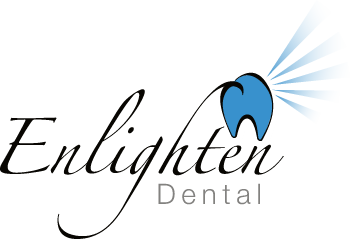Periodontal is a broad term used to describe various diseases that affect ther gums, bone and surrounding structures of the teeth. Maintenance of periodontal health is the primary focus of our hygiene department. Given that the 2001 Guinness Book of World Records lists Periodontal Disease as the #1 disease affecting mankind, our office prides itself on the early detection and treatment of signs and symptoms of Periodontal disease. These signs are not always easy to see and can be painless. Often, the existence of bone destruction by periodontal disease under the gums cannot be visually detected, and it can progress rapidly; early detection and treatment are the best defense. Consequently, routine examinations and professional prophylaxis by a skilled dental team is the best prevention tool.
What does Periodontal, or Gum, Disease look like?
Gum disease manifests itself as swelling or soreness of the soft tissue around the teeth. It is caused by the bacteria in plaque, a sticky, colorless film that forms on your teeth. The plaque bacteria have toxins that inflame the gums, can cause bleeding, and damages the bone and connective tissue that supports the teeth. Accumulation of plaque and tartar (long standing calcified plaque) covering the teeth are the beginning stages of gum disease.
How do I know if I have Gum Disease?
One of our dentists or hygienists can evaluate your teeth and gums and diagnose and possible disease. Thorough medical, behavioral and familial histories yield important clues to making the correct assessments about the disease process. As stated earlier, some of the early warning signs include: bleeding gums, tender gums, sore or painful gums, loose teeth, itchy sensation in the gums, tooth sensitivity, constant bad breath or taste in the mouth, changes in your bite, or gums that arepulling away from the teeth.
What are the Long term effects of Gum Disease?
If left untreated, periodontal disease can lead to tooth loss and permanent destruction of the bony housing around the teeth. This destruction may make fabrication and use of dentures, or plates, very challenging. Scientific research indicates that gum disease may contribute to diabetes, respiratory disease, heart disease, heart attack, stroke, or be associated with premature child birth.
What are the Keys to preventing Periodontal disaese?
Thorough tooth brushing and flossing are essential for disease prevention. Regular dental visits to a skilled dental hygienist can assist in your maintenance efforts and reinforce good oral hygiene habits. Eating a balanced diet ensures essential nutrients are available for health. Drinking 7 glasses of water per day to increase saliva in the mouth is also a helpful adjunct.
What if I do have some of the signs and symptoms of Gum Disease already?
An initial evaluation measuring the depth of space between the teeth and gums is performed. X-rays are taken to see whethere the bone has been damaged. Depending upon the damage and disease progression, treatment may include: more frequent visits to a dental hygienist, scaling and root planing procedures or gum surgery. The goal of all treatment is to minimize further destruction, make treatment predictable, cost effective, and long lasting.
